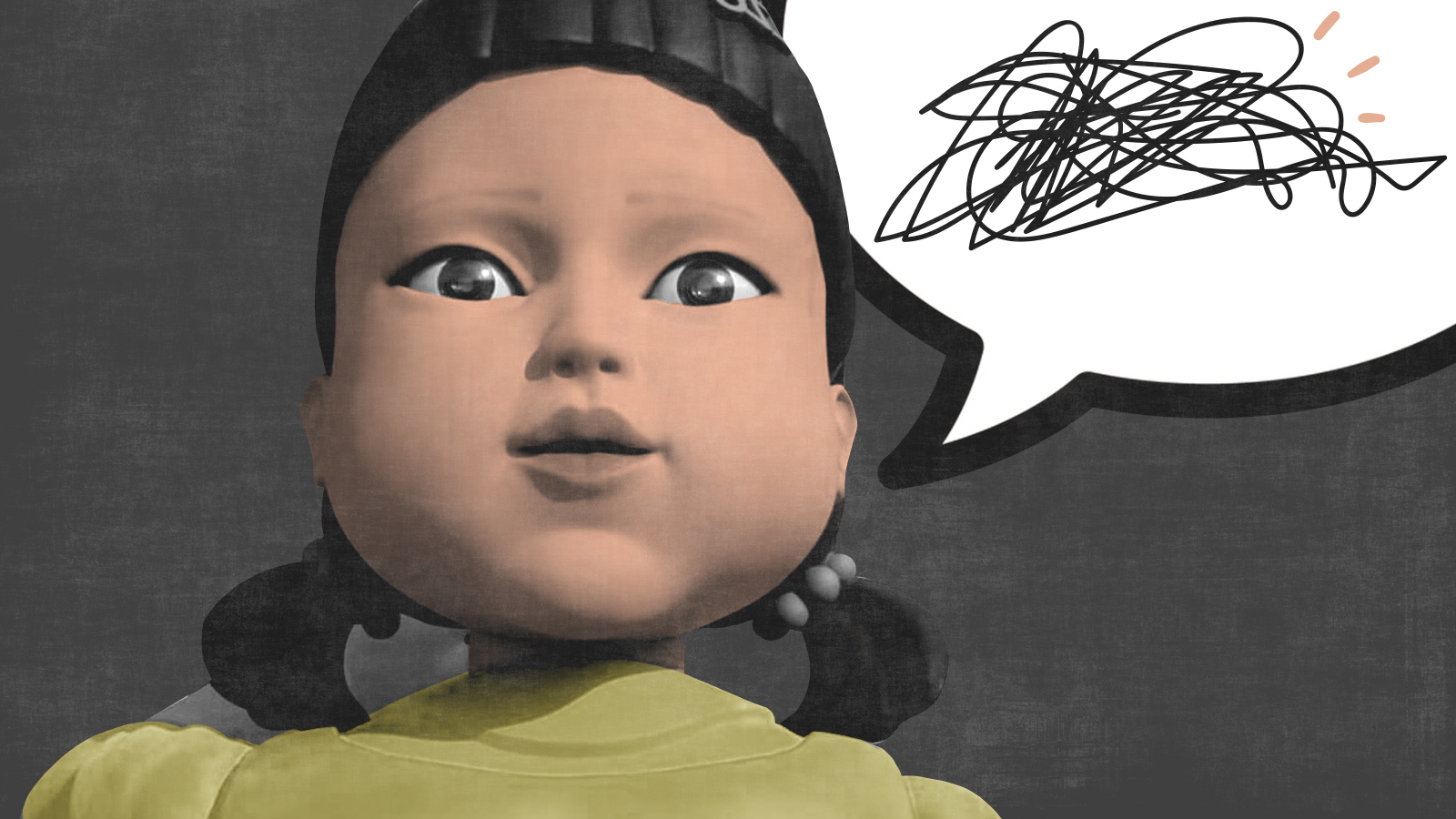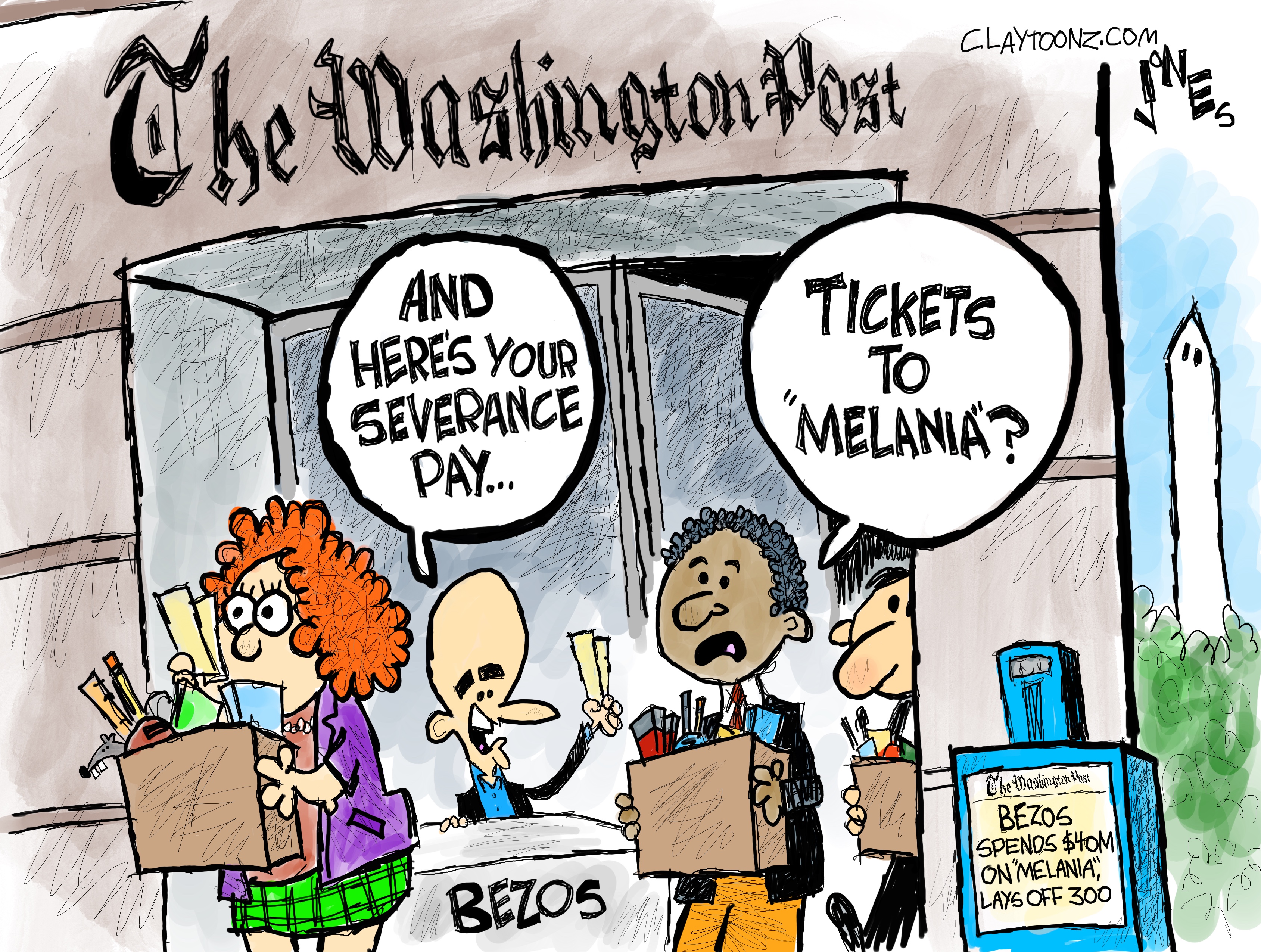Squid Game and Netflix's subtitle problem
Americans are finally willing to read subtitles — but what if what we're reading is wrong?


A free daily email with the biggest news stories of the day – and the best features from TheWeek.com
You are now subscribed
Your newsletter sign-up was successful
Nearly two years have passed since Parasite director Bong Joon-ho razzed the audience at the Golden Globes during his acceptance speech for best foreign-language feature. "Once you overcome the one-inch-tall barrier of subtitles," he scolded the organization, which had ruled Parasite ineligible for its top award because its dialogue isn't in English, "you will be introduced to so many more amazing films."
A few weeks after Bong's speech, Parasite became the first foreign-language film to win Best Picture in the Academy Awards' 92-year history. Then the first round of COVID-19 lockdowns began. English-speaking Netflix viewers soon exhausted the likes of Tiger King and began exploring non-English content like The Platform (Spanish), Dark (German), Kingdom (Korean), and Lupin (French). Some 97 percent of U.S. subscribers reportedly watched at least one non-English show in 2020.
Now, with South Korea's Squid Game poised to become the biggest Netflix show of all time, it's clear the one-inch barrier has been overcome. Americans are finally willing to read subtitles — but what if what we're reading is wrong?
The Week
Escape your echo chamber. Get the facts behind the news, plus analysis from multiple perspectives.

Sign up for The Week's Free Newsletters
From our morning news briefing to a weekly Good News Newsletter, get the best of The Week delivered directly to your inbox.
From our morning news briefing to a weekly Good News Newsletter, get the best of The Week delivered directly to your inbox.
Squid Game is a case in point. Last week, TikTok user Youngmi Mayer went viral ranting about the numerous mistranslations in the English language closed-caption subtitles for the show. In one egregious example, Youngmi explains that a line translated as, "I'm not a genius, but I still got it worked out," would be better rendered, "I am very smart; I just never got a chance to study." The original invokes a common trope in Korean cinema, a smart but uneducated character, and "the writers, all they want you to know about her is that," Youngmi said. "[It] seems so small, but it's the entire character's purpose of being in the show." The translation misses it entirely.
Separately, The Atlantic quibbles with a line translated as, "out here, the torture is worse." A more literal translation would be, "this place is more of a hell," and "that difference in meaning is important: 'Torture' might end, but 'hell' is eternal. For the players, the daily humiliations of being poor are a worse fate than risking death."
Youngmi's analysis drew some backlash as others pointed out that the translation she was critiquing was Netflix's English closed caption option (which translates the English dub), not the official English subtitles, which were more accurate. But does it make much difference? If the English dub botches the translation, visually impaired fans miss out on the nuances of the script. Or what about the 36 million deaf and hard-of-hearing viewers in America, whose Netflix accounts might be set to play the English CC version by default?
These might seem like edge cases, but any conversation about subtitles on Netflix has to include accessibility advocates, who've been sounding the alarm about the streamer's sloppy captions for years. In 2012, Netflix finally agreed to put captions on 100 percent of its library after being sued by the National Association for the Deaf (NAD) for noncompliance with the Americans with Disabilities Act. But "by and large, closed captions on Netflix's instant streaming service are loaded with nonsense characters, transcription errors, and dialogue so implausible that it's hard to believe they're actually transcription errors," Jon Christian wrote at the time for The Week. By 2018, the problems hadn't gotten noticeably better. NAD was forced to again complain to Netflix, which was "omitting swear words that were not bleeped out in the audio track and deleting whole sentences" in the provided captions of Queer Eye, The Hollywood Reporter wrote.
A free daily email with the biggest news stories of the day – and the best features from TheWeek.com
Horrible subtitles are also a familiar problem for fans of foreign language films and anime — in fact, some fandoms crowdsource amateur subtitles for untranslated or badly translated shows. But this shouldn't be an issue with Netflix, which has made its growing international catalog and presence a point of pride: Only 35 percent of Netflix customers live in the U.S. or Canada, and only 55 percent of its content is in English. Including 61 other languages in the Netflix archives has required a robust translation effort, and Netflix claims the words at the bottom of a viewers' screen are "no longer secondary assets in a world where content knows no physical borders."
If only that were true. Squid Game is far from the only Netflix show with dubious subtitling. Fans have found numerous errors in Netflix's script for Neon Genesis Evangelion, ranging from things like changing a more literal "I'm so f--ked up" to "I'm the lowest of the low" to "queer erasing" a character by crucially changing the word "love" to "like."
These problems aren't limited to English translations, either. Alfonso Cuarón's Oscar-winning Spanish-language film Roma is offered on the streamer with English, Chinese, or French subtitles. But "Netflix, which spent 25 million dollars in promoting the film, clearly did not want to spend $4,000 to $5,000 on quality subtitling in French," wrote Sylvestre Meininger, the vice president of France's Association des traducteurs-adaptateurs de l'audiovisuel (ATAA), as translated by Frenchly. The ATAA detailed the errors in a statement:
The words [in Roma] are translated literally one by one, without any real understanding of the meaning of the dialogue, which makes it seem like the work of a machine": for example, "Il m'envoyait toujours des lettres" (he always sent me letters) instead of "Il m'écrivait souvent" (he often wrote to me), or "Adios," several times translated as "Bye." Not to mention a medical gem: "I will consult you" instead of "I will check you." [Frenchly]
The truth is translation is an art form in and of itself — "it is the task of the translator to release in his own language that pure language which is under the spell of another, to liberate the language imprisoned in a work in his re-creation of that work," in the famous words of Walter Benjamin. But Netflix, the industry standard in streaming, treats it as an afterthought, with translators often going unrecognized and/or underpaid for their efforts. Translation is seen as a mechanical problem to be efficiently solved rather than the philosophical and artistic endeavor it truly is.
Maybe two years ago, Netflix could get away with slapping some auto-generated half-gibberish at the bottom of the screen. No more. No one who has jumped the one-inch barrier wants to miss a thing.
Jeva Lange was the executive editor at TheWeek.com. She formerly served as The Week's deputy editor and culture critic. She is also a contributor to Screen Slate, and her writing has appeared in The New York Daily News, The Awl, Vice, and Gothamist, among other publications. Jeva lives in New York City. Follow her on Twitter.
-
 Nan Goldin: The Ballad of Sexual Dependency – an ‘engrossing’ exhibition
Nan Goldin: The Ballad of Sexual Dependency – an ‘engrossing’ exhibitionThe Week Recommends All 126 images from the American photographer’s ‘influential’ photobook have come to the UK for the first time
-
 American Psycho: a ‘hypnotic’ adaptation of the Bret Easton Ellis classic
American Psycho: a ‘hypnotic’ adaptation of the Bret Easton Ellis classicThe Week Recommends Rupert Goold’s musical has ‘demonic razzle dazzle’ in spades
-
 Political cartoons for February 6
Political cartoons for February 6Cartoons Friday’s political cartoons include Washington Post layoffs, no surprises, and more
